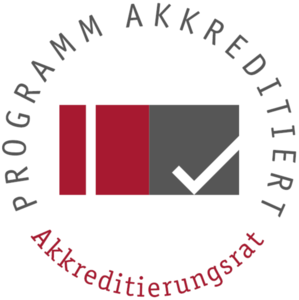As a rule, you can choose the bridging modules from the wide range of our degree programmes according to your interests. It is only not possible to choose modules as bridging modules that are already covered by your previous degree programme.
If you are studying according to the study option for graduates of a first degree in administration, economics, law or social sciences and have earned fewer than 10 ECTS credits in business administration content from the fields of human resources, organisation, investment, financing, accounting, controlling and/or management, you can be admitted on condition that you make up the corresponding modules as part of the bridging modules or as part of the supplementary modules of the Master's degree programme.
If you are studying according to the study option for graduates of a first degree programme in administration, economics, law or social sciences and have earned fewer than 10 ECTS credits in the field of public law, you can be admitted on condition that you make up the corresponding modules as part of the bridging modules or as part of the supplementary modules of the Master's degree programme.














Study Service Centre
+49 3631 420-222
House 18, Level 1, Room 18.0105